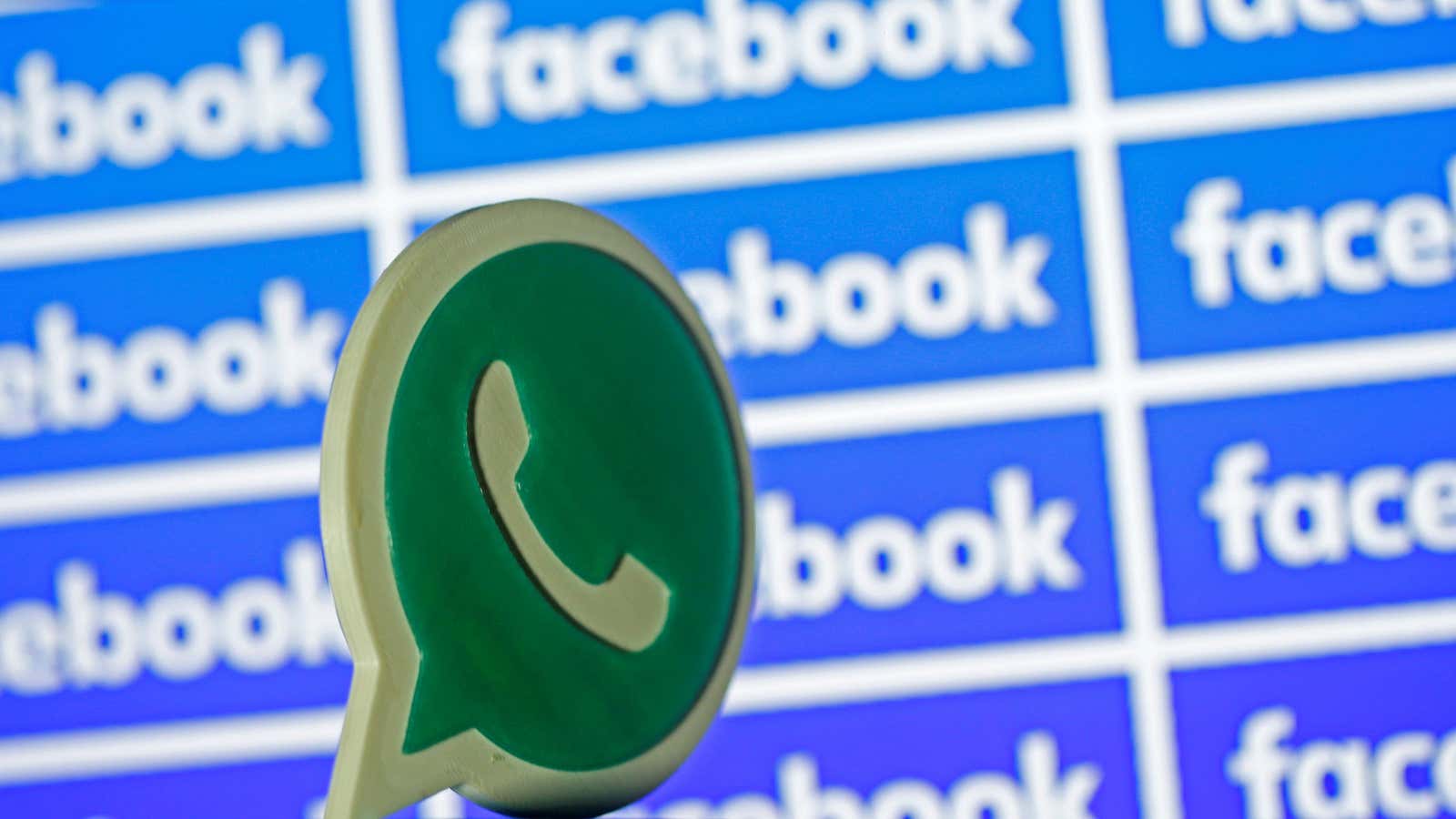WhatsApp has 1.5 billion monthly users and 60 billion messages are sent via the app each day, but stickers were never a part of the picture. That’s about to change.
On its blog today (Oct. 26), WhatsApp announced it would start supporting stickers, essentially elaborate emoji or playful illustrations. Many on Twitter and in the media pointed out that it’s about time.
Compared to other messaging apps, Facebook-owned WhatsApp has been slow in introducing the feature. Line has made stickers a core part of its brand identity since 2012, and Facebook launched stickers for Messenger in 2013. WhatsApp’s version will start with sticker packs from in-house designers and a selection from artists. The company said stickers will be available for Android and iPhone in the coming weeks, but some users have already reported being able to access them.
“Whether with a smiling teacup or a crying broken heart, stickers help you share your feelings in a way that you can’t always express with words,” WhatsApp wrote in its blog post. Non-verbal forms of communication continue to be an essential part of text speak, and WhatsApp’s latest feature seems aimed at that trend.
WhatsApp has also added support for third-party sticker packs, which means designers and developers can create their own stickers to use in the app. WhatsApp released a detailed set of guidelines, including APIs and interfaces, to make creating a WhatsApp-compatible sticker pack easy. Engadget pointed out that this will ensure the app’s sticker store continues to grow, and will likely provide wide-ranging options for its users.
Stickers can create a more versatile and playful communication experience, which has helped apps like Line take off. Stickers also present a potential source of future revenue for WhatsApp if it follows in Line’s footsteps (the app generates over $270 million in revenue a year from sticker pack purchases).
TechCrunch points out that WhatsApp’s new feature is a Facebook-led move, since WhatsApp founders Jan Koum and Brian Acton have previously said they were opposed to advertising, games, and other functions that detracted from WhatsApp’s main mission: simple and reliable messaging. (Koum and Acton left WhatsApp earlier this year after clashes with Facebook over data privacy.)
Even if the advent of sticker packs stray from WhatsApp’s pared-back-messaging ethos, many users seem pleased with the option so far. With the rise of WhatsApp Business and the advertising potential this has in Africa, and Facebook CEO Mark Zuckerberg’s plans for payments via WhatsApp in India, it’s likely stickers might become a money making machine, too.
